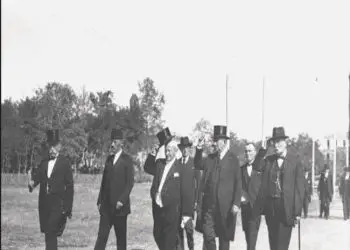By Ahmet Bushati
Part fifty-one
Memorie.al/ After the flag was altered in 1944 with the addition of the communist star, Shkodra transformed into a center of resistance against the regime, paying a high price for its tradition of freedom. By April 1945, high school students, already feeling betrayed by the promises of the war, gathered to oppose the new terror that imprisoned and killed innocent people. Communism turned Kosovo into a province of Yugoslavia, while Shkodra was punished for its “historical crime”- its defiance against invaders. The “Postriba Movement” became a tool to suppress all dissent, plunging the city into an unprecedented spiral of suffering: imprisonments, executions, and the destruction of families. The high school students, alongside citizens, became symbols of resistance, while some “young communists” turned into tools of the State Security, leading to expulsions, imprisonments, and internments.
Four times, Shkodra rose in armed rebellion, but history forgot these battles. This book is written to remember the countless prisoners, the tortured, the killed, and the parents who suffered in silence. It is a warning against dictatorship and a plea for future generations not to forget the sacrifices made for freedom.
Continued from the previous issue
In the Footsteps of a Diary
The person who would stay in that room at No. 7 all day long, reading and often taking notes, would be Dom Nikollë Mazrreku, a serious man who was more or less closed in on himself, but when you went to visit him, from the pleasure he would feel on that occasion, he would become a different person. Thus, Dom Nikollë, from being a loner and a misanthrope, would always be locked inside his lair, in accordance perhaps with the principles of his mission as a priest and, as a scholar who was, on occasion, it would be proven that he needed to be satisfied as a human being.
A short time earlier, by the criminal Xhemal Selimi, his brother, Ndreka, had been shot, falsely accused of allegedly throwing a can of gasoline into the fire that had engulfed the Drun Establishment in Fushe-Arrëz, where he had been working. In fact, while the factory was burning, he had not stopped filling that can several times, not with gasoline, as the deliberately slanderous accusation would have it, but with water. In this room were also two other prisoners, implicated in the Postriba Uprising, one older, whose name was Gjelosh Vata, who was undoubtedly the shortest in the prison, very lively in movement and in conversations with friends, and the other, Gjon Leka, who wrote poetry with talent with motifs from village life.
Somewhere near Hamit Kazazi and former captain Halit Gega, there was also a certain Abas Hysi, from the village of Vithqar on the Mountain Side, good-looking and tall and with legs like a mule, to whom the prisoners in the cell, for humor, would remind the occasion when he once made them nervous with the investigator who had hit him with a stick without stopping, he had behaved by saying: “I laugh and I don’t laugh, and Bedri Shazin I don’t laugh”, a person who, as they said, laughed, that investigator had not asked for it until then. In that room, they would also meet another Anamala resident named Muharrem Saiti, from the village of Muriq, who the whole time remained to himself, without moving from his place and without asking to talk to anyone.
According to those who knew him, he was brave because he had no husband. I must have been his closest friend in that room, for the acquaintances my father had made with his ancestors. When I once, for fun, asked him if he would be ashamed to be a gendarme (if a day came as we used to be), he would answer me without looking at my face: “Gendarme”! “Then, as a gendarme, what will you do?” – I would continue to ask Muharrem, and he, looking at me with a smile on his face, would answer me for the second time: “The women who make love and those who go to the cinema, I will kill with my own hand.”
There would be no poor person in a prison cell who would not be helped in some way by someone else, and there would be no destitute prisoner whose belongings we would not take to our homes to leave with them. When it was necessary to come to the aid of a poor person or a villager, not without risk, we would even open the door of the dungeon late at night, just to give him, as a convict and a stranger, a blanket and a little food.
During my stay in this cell, I was intensely occupied with continuing to learn the French language – which, as we know, was once interrupted, having been replaced by Russian – as well as with reading a lot of foreign literature. Inside the prison, after the “turn”, perhaps for a certain period, masterpieces of world literature could be introduced.
I remember that there I read in Italian the works of Steinbeck, Cronin, Dickens, Bernard Shaw, Hugo, Bourget, etc., as well as many of the main works of Tolstoy and Dostoevsky, in French the novels of Chekhov, Lermontov and Gogol, interesting reports by Ilia Eremburg from the front of the last war, as well as in Albanian from his trip to America, on which occasion he would, among other things, also speak of “car cemeteries”, which would have surprised us, as well as Eremburg himself, both as a fact and as a name!
I remember that there I read Carlyle’s “Gli Eori”, the short philosophical summary in the book with the title; “Il Pensiero”, from which I did not understand the content properly, at least I understood what a philosophical treatise was in itself and, on that occasion, I got to know by name and biography the long line of philosophers, which, having begun with the Greeks Socrates, Plato and Aristotle, would end with Bergson and Santayana.
Perhaps it was prison itself that made reading each book arouse interest and attribute to it values that perhaps in reality it did not have. For example, once I was reading a book – perhaps by Settembrini – a voluminous book without much artistic value, but which would attract me because, while showing how the Italians were fighting to drive the Austrian invaders from their lands, the author would describe the Albanian warriors (Arbëreshë) as the bravest, which would make the book even more attractive to me.
I and others like me would also read a lot of scientific and social literature, such as the books; “Come si crea la vita, questo sconosciuto”, by Carrelli; “La vita comincia a quarantanni”, “L’uomo sessant’anni”, by Harry Box, “L’inferiorita mentale della donna”, “Sesso e Carattere” by Eaininger, “L’importanza di vivere” by the famous Chinese Lin Yu Tang, etc., etc., which there is no need to remember one by one.
There would be those prisoners who had remained more or less captive to only one book for a long time, such as Xhevat Dani and Dom Mark Hasi, who for years would keep under their pillows, respectively, the novel “Figlio, figlio mio”, and the other “Il divorzio”, which they would read in parts, who knows for the umpteenth time. But not all former schoolchildren – even if they were high school students or even college students – would seek to read books or learn foreign languages.
There were some young people who had given up a lot after the endless prison conversations, as there would be others, such as the case of one Sami Repishti, who, to the surprise, and perhaps even the astonishment of many prisoners, saw it necessary to read even the statute of an agricultural cooperative. So, each one, as it were, according to his own “modus vivendi”, with which he had understood prison and the time that, fortunately, continued to pass.
One could write at length about the life of a prison cell and see how, due to the conditions it had, instead of resembling a tomb with living people inside, thanks to the prisoners themselves, their high morale, and the human trait of adapting to any circumstance, it had become a warm and interesting environment, an environment of sincere communication and an unrepeatable solidarity.
As long as I was in room 7, I would enter into a competition with Maliq Bushati to see which of us knew the most words in Italian. Maliq had graduated in jurisprudence in Bologna, Italy, while I had improved my Italian in prison. So, for fun, in the presence of one or two witnesses, we would hold a “competition” for which I would go first, secretly from him, and extract rare words from the dictionary.
Dom Pjetër Gruda, although a priest, was that special number that perhaps neither our room nor the prison had. Sensitive and impulsive as he was, very prone to humor and constantly cheerful, in the relationships that I and some friends had with him, we often had a hard time remembering that he was also a priest. Dom Pjetër’s strong “secular” jokes, word of mouth after word, would pass through the entire prison and even reach the ears of, for example, a strict Father Frano Kiri there in room 4, where then Dom Pjetër, would eat a piece of wood on that occasion, and make him, if he did not want to repeat his mistakes, supposedly separate himself from us for a period of no more than two weeks, to betray himself again.
During those days of supposed “penance”, Dom Pietri, although he did not speak to us verbally, since it did not suit him, he would, with the intention of provoking us, wrap a towel up high over his head, just as if it were a priest’s shawl, and stand without speaking or looking at anyone. Meanwhile, we would go after him, calling his name, while he, as if seriously angry with us, would answer us without looking at our faces: “Get away from me, I don’t know you, I don’t know you, who are you”?!
Dom Pjetri and Asim Golemi had taken on the task of reading the newspaper at a certain hour in the evening, and as one, to make fun of the other, they would transform that reading into the accented Kavaja dialect, lengthening and opening its characteristic “a”s even more, and then adding the word “lalë”, also characteristic of Kavaja, here and there.
That hour of reading the newspaper often turned into a truly hilarious hour. Dom Pjetri in particular would distort words and sentences a lot while reading, improvising and paraphrasing “jewels” that would sometimes set a room ablaze. For example, if the name of Enver Hoxha was written in the newspaper, Dom Pjetri would immediately add: “…who laughs like a donkey on a bridge”, or if the newspaper wrote about Stalin, Dom Pjetri, without taking his eyes off the newspaper, would continue: “…that Stalin, who has a mustache like… and who, with all due respect to you men, eats me…”, and so on and so forth.
The fate of life with Dom Pjetr would be very harsh: after many years of being released from the first prison, he would be arrested again, and just three months before completing the ten years of the second prison, and precisely in 1989, he would die.
I cannot leave room number 7 without remembering Gac Çuni, who several times, having escaped from his sick room, would sneak up on the guards and jump like a “fly” among us, and after we would move from one short conversation to another, with the humor that Gac always brought with him, he would start singing not only “Kaçurrelat” and that of “Çoban” that he had just composed, but also others in a row, and on all those occasions, we would have the pleasure of following Gac, Gac Çuni, in a group, but in low voices, who, since he had not been in prison, through “Radio Shkodra”, with his voice like a true nightingale, had continued to delight our Shkodra.
If that prison ever had a prisoner who was excluded from politics, that man was Gac Çuni, with only artistic and cheerful disposition for life. When I was brought to the prison yard once during the airing hour, Gac would say to me: “I’m ashamed to admit it, but if there is one person in this prison who doesn’t want to know about politics, it’s me”! Even if a person is not superstitious, in prison he becomes so. It is true that prisoners believe in dreams out of necessity, but it is also true that dreams have sometimes foretold to prisoners’ events that would actually happen to them in the future.
When a prisoner woke up from a dream that night, he would first review it once or twice, to himself, play it over in his mind, and then, once crystallized, tell it to one or two people who were close to him. When the dream needed interpretation – because it often appeared through symbols – then the interested party would refer them to those who were known in prison as “specialists” for their interpretation.
I myself have had one of those dreams that would come to me, which sometimes preceded events that would later happen to me, as well as those that would not be related to me, although I, with some very rare exceptions, would not talk about them with anyone.
Like dreams, in prison, people also believe in the shoulders of cattle, in which they believed that events related to the fate of a person, a house or a collective could be read, as would be our case before we left for the camp, in May 1951. A few days earlier, word had circulated in the prison cells that; “that scoundrel in room no. 4 – known as the specialist in reading shoulders – had said that; “these prisoners who are leaving for the camp this time are not returning to prison, and some of them are even dying there, because the shoulders show blood”. And the truth would be that those of us who left on that occasion never returned to prison, and some of them even died there.
The Branch Chief at that time would be Hilmi Seiti. As a student of the Shkodra gymnasium that he had attended years before, he would find some of his former classmates in prison. He would not treat any of them badly, but he would treat them very well, especially those who had been boarders of the “Malet Tona” dormitory with him, such as, for example, Mark Lulashi, Fran Sokoli and some others, while with Kolë Kurti, Zef Zorba, Ruzhdi Çoba, Sirri Anamali, etc., somewhat differently.
There was a time when we would have even had a drink, and that once, having been in such a state, he would have come to Dom Nikollë Mazrrek’s neck, reminding him of Ndreke, his brother who had been shot a short time before, in which case Dom Nikollë, out of grief for his innocent brother, would confront him with such anger and courage that it would have surprised and impressed us all.
Fran Sokoli, having trusted Hilmia’s friendly behavior with him, would one day say to him: “Hilmi, when are those cars going to take us out that way?” “Are you serious?” – Hilmia had come to Fran, and Fran calmly repeated those same words once more, and then Hilmia finally said to him: “Fran, if you talk like that again, I’ll cut out your tongue”!
The treatment, especially during the first two or three years, was incomparable. Twice a day they would take us out into the large yard and, when spring came, some of us would play volleyball during that hour. Two teams of volleyball players represented the lower and upper rooms of the prison, respectively. There were volleyball players there who, in conditions of freedom, would have undoubtedly had their deserved place in the city’s representative team.
Volleyball players, such as Mark Lulashi, Fran Sokoli, Gani Ymeri, Man Qehaja, Nush Simoni – who, when he was not sick, managed to go out with his chest over the net – Ahmet Kopliku, Paulin Kel Pali and some others, as the Shkodra team itself had difficulty finding them at that time. The priests Dom Mark Hasi, Dom Pjetër Gruda, as well as the deacon Ndue Soku would also play very well. Refik Bushati and I would fill the six rooms below, while Ruzhdi Çoba would be the referee.
From time to time, we young people would receive handwritten communiqués from Zef Zorba, reflecting the political situation in the country and pointing out the external factor that would one day overthrow the communist regime in our country. Zef Zorba’s light, simple, concise, and yet cultured style would constantly speak of his intellectual preparation and talent.
While Father Gardin and I were waiting in the corridor in front of the W.C. line one evening, Ismail Baruti entered and hugged us. He had been returned to our prison that day from Tirana prison. He had brought with him a song that was being sung; “The Cell Song”, which he sang to us on the spot, in his light and sweet voice, and which I think was written by Pjetër Gjini, was imprisoned in Tirana:
“I, the wretched, am imprisoned and locked in a cell,
As if in a grave I spend my life here,
Without a single word, in solitude.
Chorus:
Cell, night and day I curse you,
Cell, grave for the living, I do not love you,
You took my life before its time,
You do not feel sorry for a young man,
Do you feel it, my dear, do you not have a heart?
and cursed, you cell.
Woe to me, how I am decaying
and I am lying in this place,
Never seeing a ray of sunshine, world,
nor a flower, not a thing,
With steel and cement,
I am surrounded without who,
Chorus:
Freedom, holy word that I adore,
Freedom, sweet word that I love,
Without your life is not happy,
Here there is no peace at all,
Slowly it is consuming my life,
The prison of the dead, the black prison.
I have a mother who is angry,
who expects joy from me,
I have a wife who is wise,
who expects happiness from me,
I have a son, oh! you are immature,
who expects a lesson from me.
Chorus
Love, a precious word that reminds me of you,
Love, a sweet word that makes me want you,
Without you, life is not happy,
Day and night I stay and erase,
Erase for parents and for lovers, that…
Chorus
Cell, night and day I curse you…”
When Smajli finished the song, I was moved to see Father Gardinin on his face, and I saw that his eyes were twinkling from two sides like red curtains of tears. To our delight, Smajli sang that song to us for the second time, while several other prisoners were also around us. After two days, this song was being sung in all the prison cells. Memorie.al
Continues in the next issue




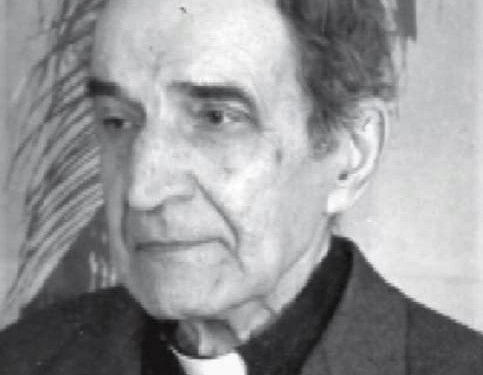
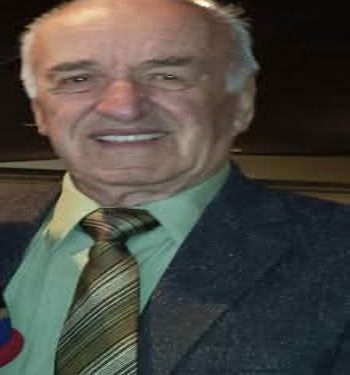
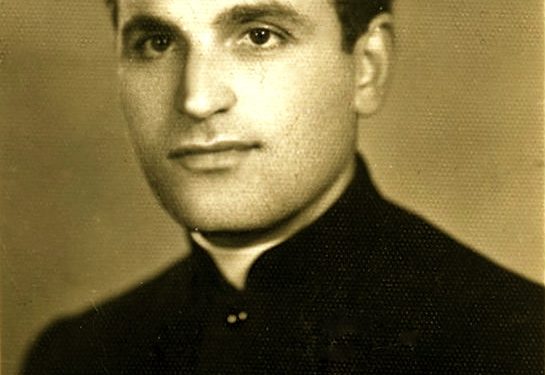
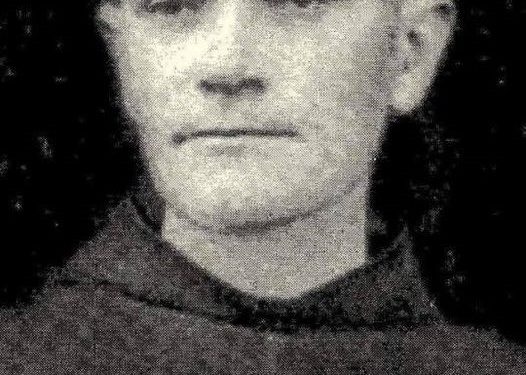
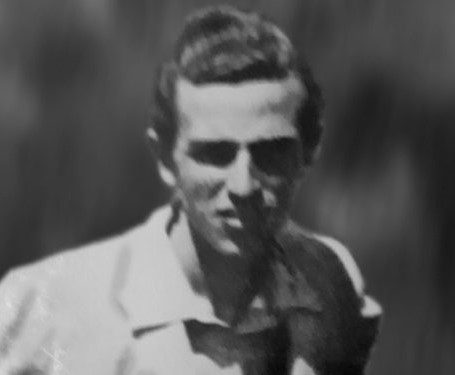
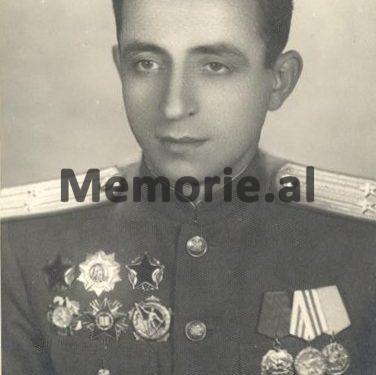
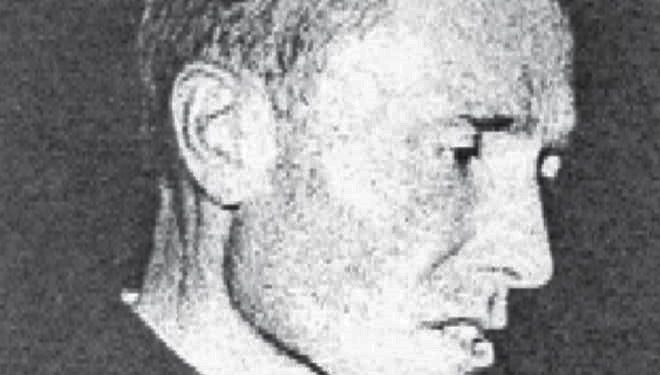


![“After the ’90s, when I was Chief of Personnel at the Berat Police Station, my colleague I.S. told me how they had once eavesdropped on me at the Malinati spring, where I had said about Enver [Hoxha]…”/ The testimony of the former political prisoner.](https://memorie.al/wp-content/uploads/2024/09/admin-ajax-4-350x250.jpg)
